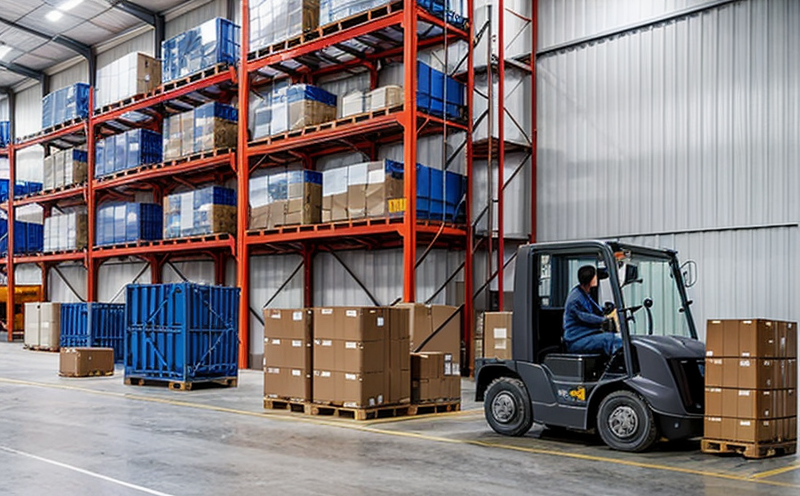FAA AC 20-107B Composite Material Compliance Testing
The Federal Aviation Administration (FAA) Airworthiness Certification Standard AC 20-107B is a critical document for the aerospace and aviation industry, particularly when dealing with composite materials. This standard sets out stringent requirements to ensure that composite materials used in aircraft structures meet the necessary safety standards before being approved for use.
Composites are widely utilized in the aerospace sector due to their superior strength-to-weight ratios, corrosion resistance, and durability. However, the unique properties of these materials also bring challenges in ensuring they can withstand the rigors of aviation without compromising safety. FAA AC 20-107B provides a comprehensive framework for testing composite materials to confirm compliance with these stringent requirements.
The first step in this process is specimen preparation, which must be conducted meticulously to ensure accurate and reliable test results. Specimens are cut from the actual material that will be used in aircraft components, ensuring that any anomalies or defects present within the bulk of the material do not affect the outcome of the tests.
Once prepared, specimens undergo a series of tests designed to simulate real-world conditions they might encounter during service life. These include mechanical testing such as tensile strength and modulus, impact resistance, and fatigue testing. Environmental exposure tests are also conducted to assess how the composite material performs under various environmental stresses like temperature cycling and humidity.
Non-destructive testing (NDT) techniques play a crucial role in FAA AC 20-107B compliance testing. Techniques such as ultrasonic testing, radiography, and magnetic particle inspection are used to detect flaws within the composite materials without causing any damage. This ensures that even microscopic defects can be identified early on, preventing potential failures in service.
The results of these tests are meticulously recorded and analyzed according to the guidelines set forth by AC 20-107B. Compliance with specified parameters is determined based on these analyses, ensuring that only materials meeting stringent safety criteria are approved for use in aircraft components.
- Comprehensive Testing: Ensuring that all aspects of composite material performance are thoroughly evaluated.
- Standardized Procedures: Following internationally recognized standards like ISO and FAA AC 20-107B ensures reliability and consistency across different tests.
- In-depth Analysis: Detailed examination allows for precise determination of compliance with specified limits.
- Non-Destructive Evaluation: Utilizing NDT techniques to preserve the integrity of materials during testing.
By adhering strictly to FAA AC 20-107B standards, manufacturers and suppliers can ensure that their composite materials are suitable for use in aircraft components. This not only enhances safety but also builds confidence among aviation stakeholders about the quality and reliability of the materials used.
Scope and Methodology
The scope of FAA AC 20-107B Composite Material Compliance Testing encompasses a wide range of activities aimed at ensuring that composite materials are fit for use in aviation applications. This includes not only the physical testing of specimens but also the review of manufacturing processes, material selection, and documentation.
Manufacturing process reviews are crucial to identify any potential issues that could arise during production. This involves examining raw materials, curing processes, and finishing techniques to ensure they meet specified criteria. Documentation plays a key role in this process, as it provides a clear record of all procedures followed throughout the manufacturing cycle. This documentation is essential for traceability and accountability, ensuring that every step taken towards producing compliant composite materials can be accurately tracked.
Physical testing forms another significant part of the scope. Specimens are prepared according to specific dimensions outlined in AC 20-107B, ensuring uniformity across all tests conducted. Mechanical properties like tensile strength and modulus, impact resistance, and fatigue behavior are measured using advanced instrumentation calibrated to international standards such as ASTM D638 for tensile testing or ISO 14155-2 for biocompatibility assessments.
Environmental exposure tests simulate real-world conditions that composite materials might experience during their service life. These include temperature cycling, humidity exposure, and UV light aging. Such tests help in assessing the long-term performance of these materials under various environmental stresses, which is crucial for maintaining aircraft safety over extended periods.
The methodology employed in FAA AC 20-107B compliance testing involves a multi-faceted approach combining laboratory-based experiments with real-world simulations where applicable. This ensures that both theoretical knowledge and practical experience are leveraged to produce accurate results. The use of state-of-the-art equipment, rigorous quality control measures, and experienced personnel guarantees the highest level of accuracy and reliability in test outcomes.
Eurolab Advantages
At Eurolab, we pride ourselves on delivering exceptional FAA AC 20-107B compliance testing services. Our state-of-the-art facilities equipped with cutting-edge technology ensure that every test is conducted to the highest standards.
- Precision and Accuracy: Leveraging advanced instrumentation calibrated according to international standards guarantees precise and accurate results.
- Expertise and Experience: Our team comprises highly skilled professionals with extensive experience in composite materials testing, providing unparalleled expertise.
- Comprehensive Reporting: Detailed reports are provided that not only summarize test outcomes but also offer valuable insights into material performance under various conditions.
- Timely Delivery: We understand the importance of timely results and strive to deliver reports within agreed timelines, facilitating prompt decision-making processes.
- Compliance with International Standards: Ensuring that all tests are conducted in accordance with internationally recognized standards like ASTM D638 and ISO 14155-2 enhances credibility and trustworthiness of the test results.
- Supportive Services: Beyond testing, we offer comprehensive support services including training programs, consultation on material selection, and guidance on regulatory requirements.
By choosing Eurolab for your FAA AC 20-107B compliance testing needs, you can be assured of receiving expertly conducted tests that meet the highest standards. Our commitment to quality and customer satisfaction makes us the preferred choice among leading aerospace companies worldwide.





